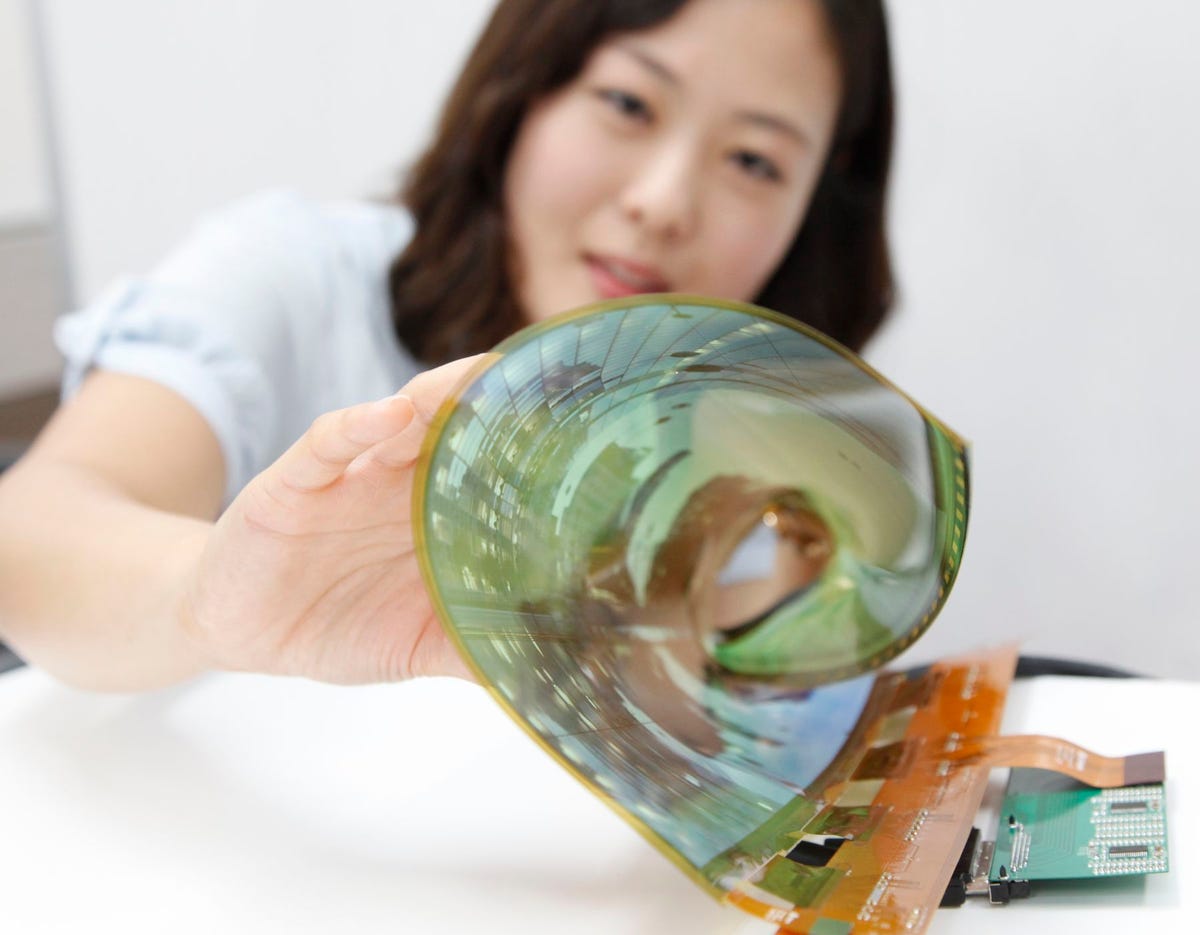
LG Display
The days of being able to roll up a computer or television screen are (kinda) upon us.
LG Display will feature prominently at the 2015 Society for Information Display conference in San Jose, Calif. this week, showcasing an 18-inch flexible organic light-emitting diode (OLED) display.
According to LG Display, the panel, which is paper-thin, can be rolled up like paper to a radius of three centimeters without ever affecting its functionality.
The display will be shown off as part of LG Display Chief Technology Officer In-Byeong Kang’s keynote speech on Tuesday. He will present on “The Opportunities and Challenges Facing the Display Industry.”
The keynote is part of a broader effort on LG Display’s part to showcase the latest and greatest display technology. The company showcased new OLED TVs at the Consumer Electronics Show (CES) in January, and followed that up with a special press conference in Korea in May to unveil several new OLED devices.
In May, the company, which is a wholly owned subsidiary of LG, showed off a proof-of-concept television known as “wallpaper.” The 55-inch OLED weighs just 1.9 kilograms and is less than a millimeter thick. It attaches to a wall with a magnet.
OLED is widely believed to be the next big thing in displays. The technology adds an organic compound layer that allows not only for exceedingly thin screens, but for those displays to be curved, rolled and bent. The organic material also emits its own light, eliminating the need for a backlight. That allows for thin screens and has made OLED a desirable choice not only for televisions, but for a wide range of wearables and other mobile products.
While some OLED screens have been used by companies like Samsung, LG and Sony, the costs are still quite high to produce the displays. Part of that cost is due to a relatively low yield, or production of displays that are actually functional. More waste means higher costs on the screens that do make it through production. Those costs are then passed on to consumers. LG’s 65-inch, 4K OLED TV, for instance, costs $9,000.
For its part, LG Display has touted that its yield rate has hit 80 percent, but it is still much lower than that of LCDs.
Still, LG presses on with new and interesting OLED technology. While the company is looking to showcase its rollable display this week, it has not yet said how it would be used and when it could eventually be available to customers. So, for now, the roll-up OLED is little more than a cool piece of tech that may or may not hit store shelves at some point in the future.
LG Display did not immediately respond to a request for comment on its plans for the roll-up display.




